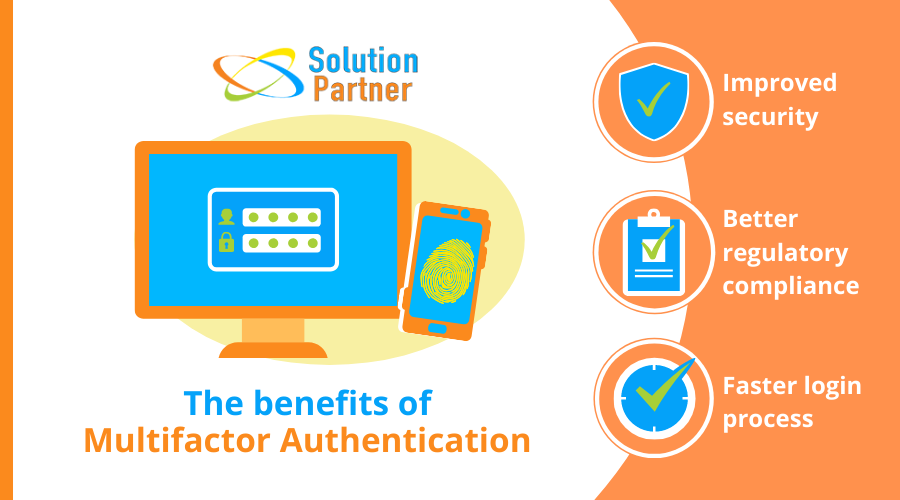What are the benefits of MFA?
MFA may seem like just another hurdle for users before they can gain access to systems, but the technology has many security benefits, such as:
#1. Improved security
Passwords are highly susceptible to brute force attacks, which involve cybercriminals trying different combinations until they get one right. MFA supplements passwords by adding an authentication factor that cybercriminals cannot easily steal, such as a code sent to the account owner’s mobile number, or the account owner's voice or fingerprint. Cybercriminals would need to have any of these authentication factors if they want to access the user’s account, which can prove difficult to do.#2. Better regulatory compliance
Businesses are required to comply with data compliance laws. For instance, the Health Insurance Portability and Accountability Act of 1996 (HIPAA) mandates companies to secure their clients’ protected health information (PHI). Implementing MFA can be a step toward better compliance.#3. Faster login process
Contrary to the notion that MFA complicates the login process, MFA enables users to take advantage of faster and more secure login solutions such as single sign-on (SSO). SSO allows a user to log in to a network of applications with only one set of login credentials. And by pairing it with MFA, the system can easily validate the identity of a user and grant them access to various applications without the need to sign in to each one. To illustrate, an employee can log in to a company’s network using their login credentials. Then after scanning their fingerprint or face, they can access any of the company’s various applications. This saves them time, which they can then use on more productive tasks.The hurdles of MFA for businesses
Despite the aforementioned benefits of MFA, some businesses still don't implement it. Studies have shown that while more companies have been using MFA, poor password habits remain an issue among employees. For instance, users need to remember multiple passwords to log in to various systems. Some even resort to password recycling, or using the same password for all user accounts. MFA also comes at a cost for some businesses. Some Software-as-a-Service (SaaS) providers charge a premium for smart cards, biometric scanners, and hardware tokens. Small organizations may not be able to afford these, forcing them to solely depend on passwords and cheaper security solutions. Businesses are also burdened with the responsibility of choosing the most secure MFA method. For instance, cybercriminals can now intercept calls and messages to acquire authentication codes, so certain industries that handle confidential information, like banking and the military, should think twice about which MFA solutions to use. Instead, businesses in these industries can use facial and fingerprint recognition to secure their data. Lastly, there is the possibility of device theft to acquire MFA codes. For example, someone can steal an employee’s smartphone and use the code sent there to authenticate the login attempt. But what's more likely to happen, however, is cybercriminals resorting to SIM swapping to steal authentication codes. Needless to say, it’s paramount that businesses take extra precautions. Despite these drawbacks, MFA should be an essential part of any business’s cybersecurity. Get the protection you need and more when you sign up with Solution Partner. We will provide 24/7/365 proactive IT support, so your business’s data is always protected. To learn more about us and how our managed services can supercharge your Arizona organization, download our free eBook today.Unsure how to protect your business
Maybe it's time for a technology partner. Enter your name and email address on the respective fields on the right to receive our free eBook, Managed Services: Why they're perfect for your SMB


Leave a comment!